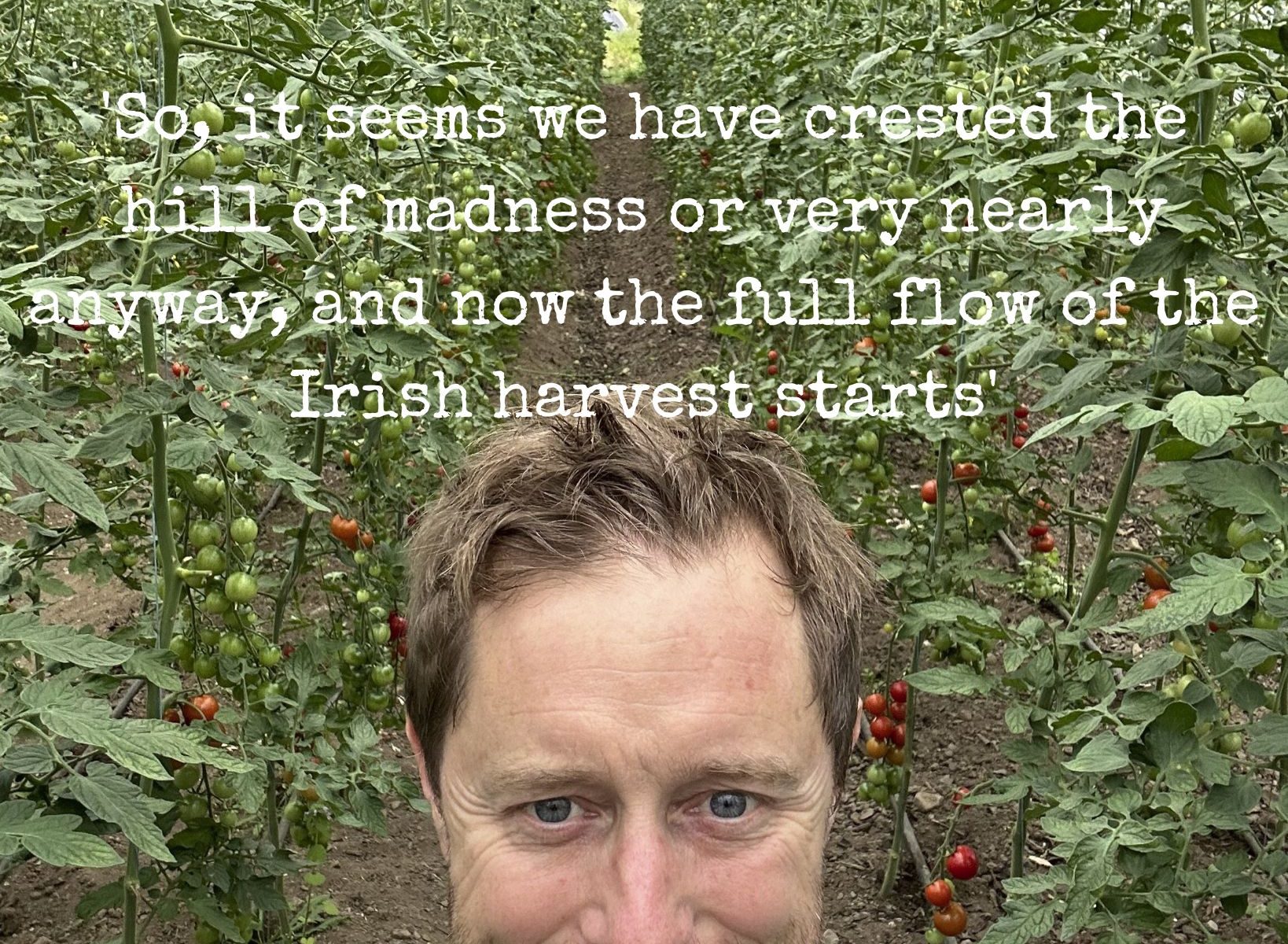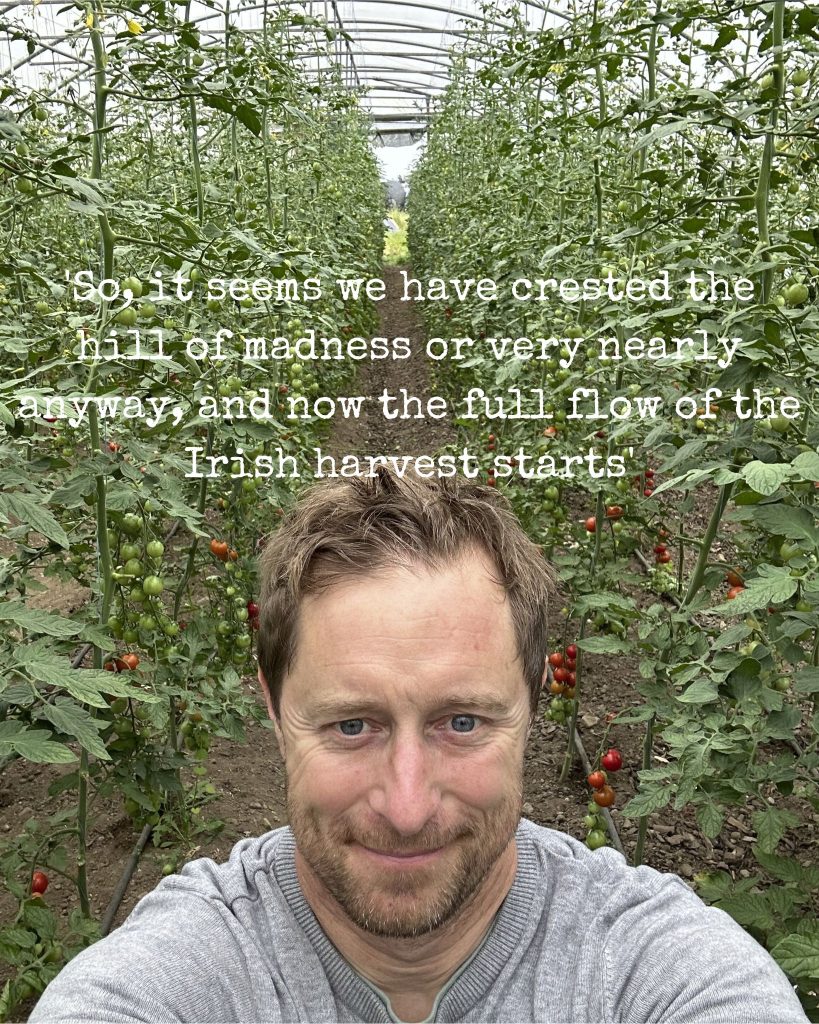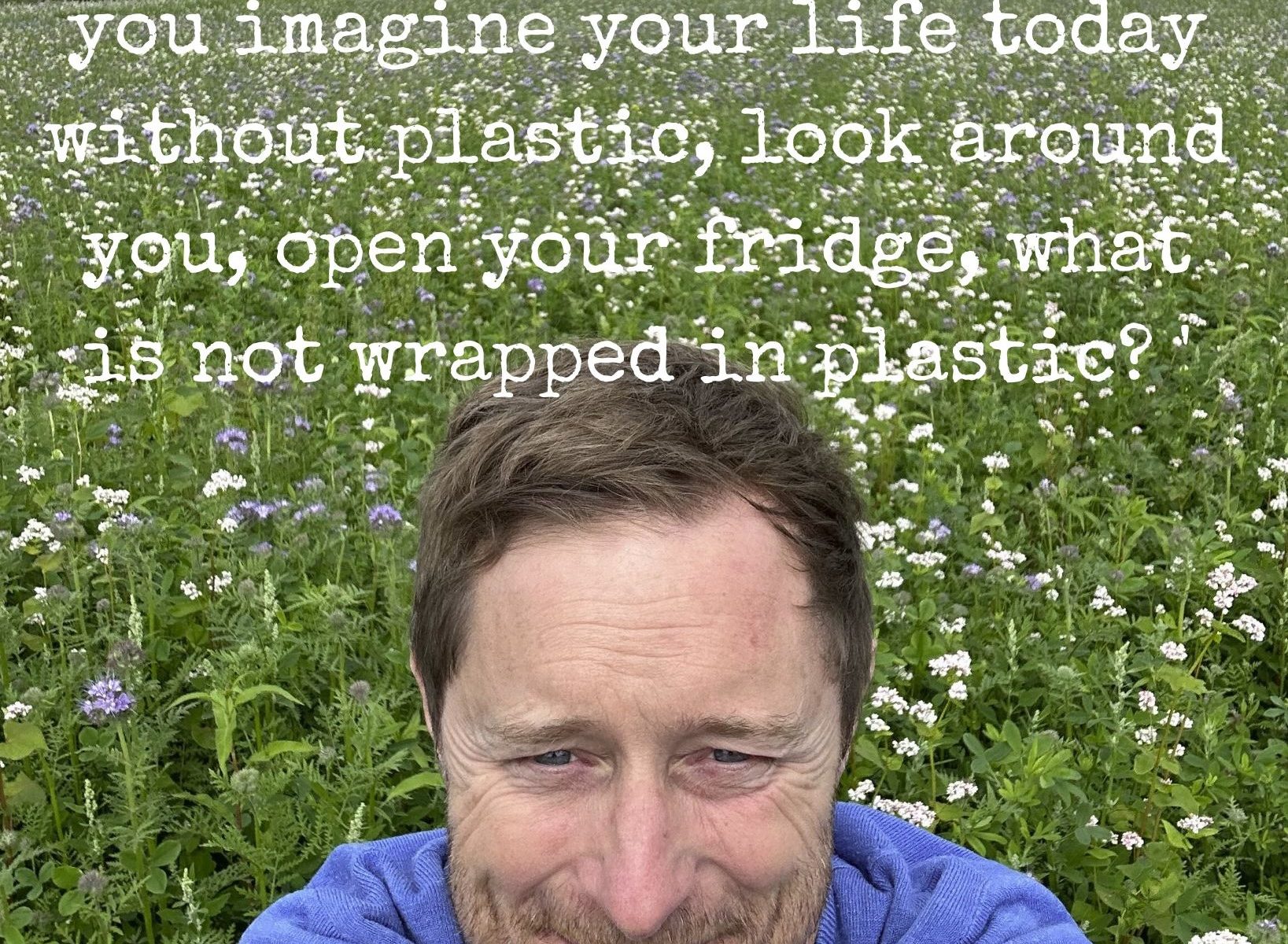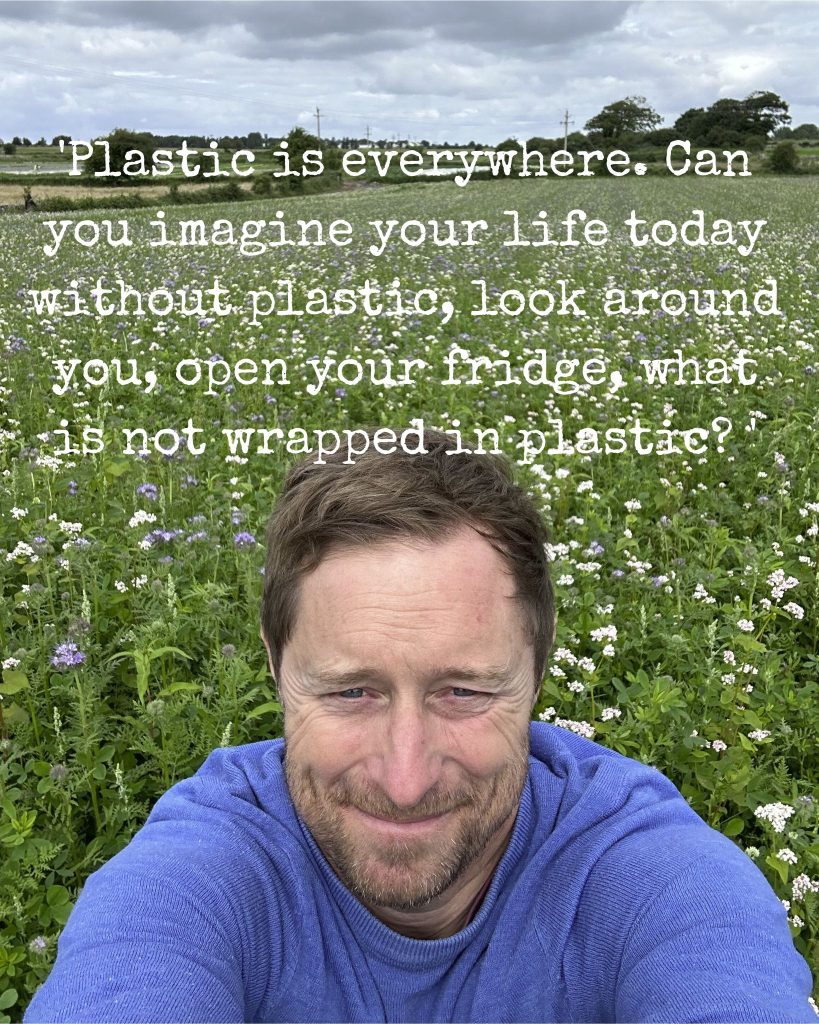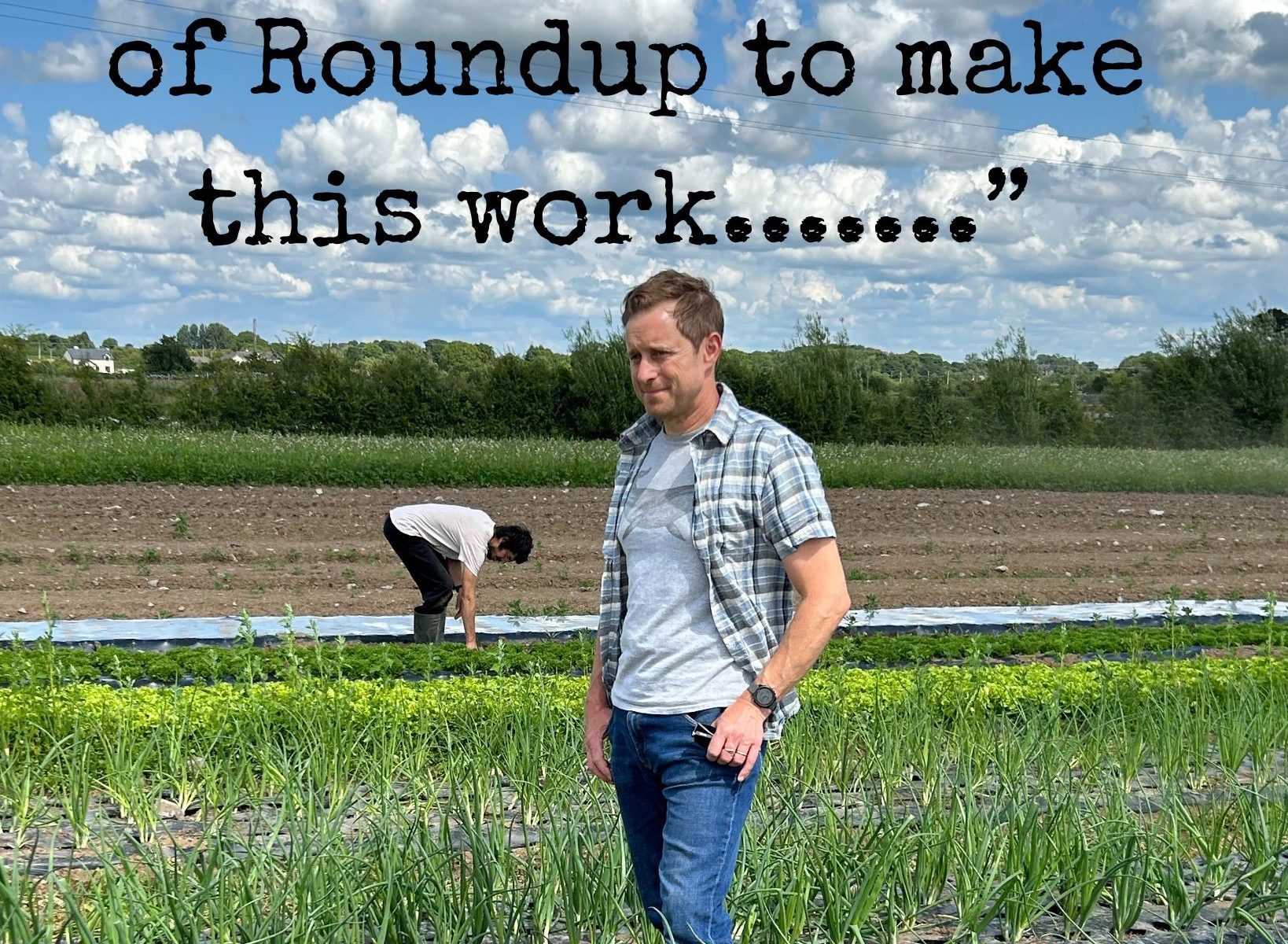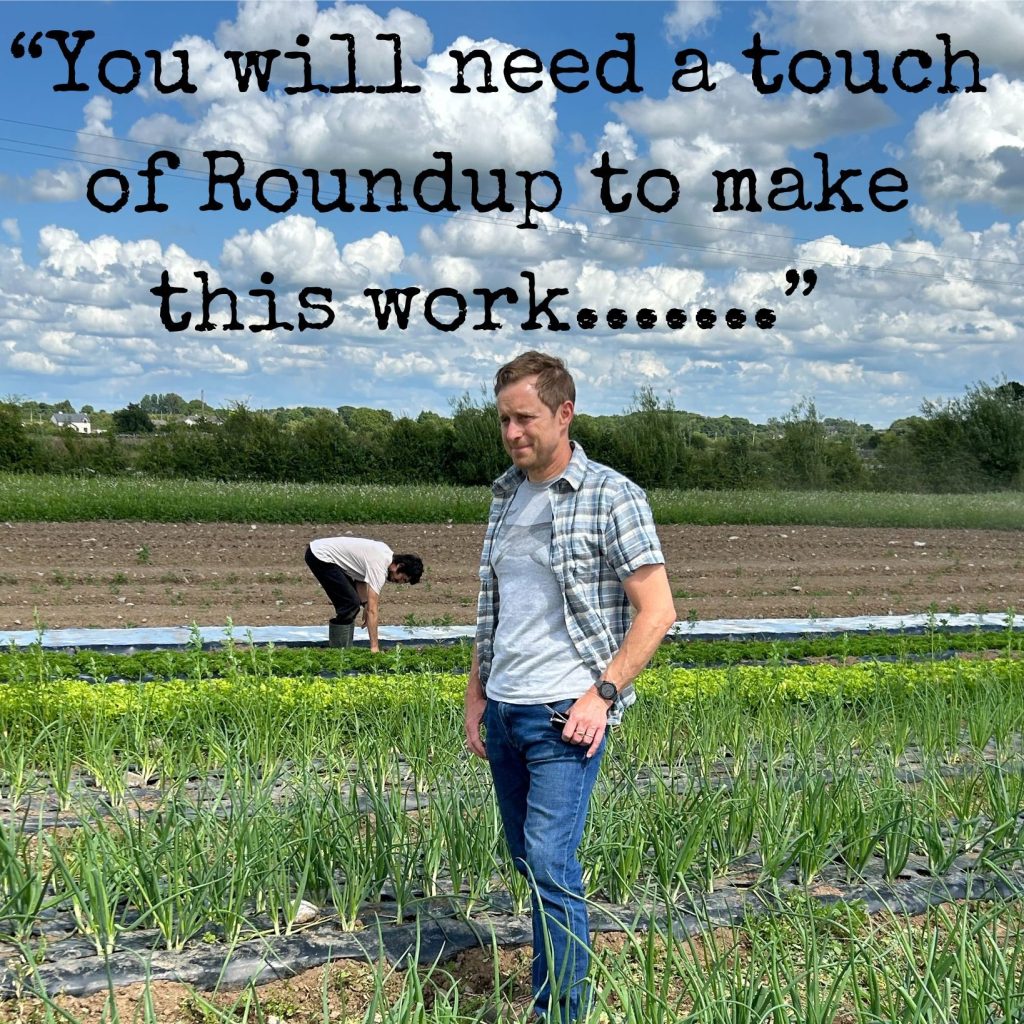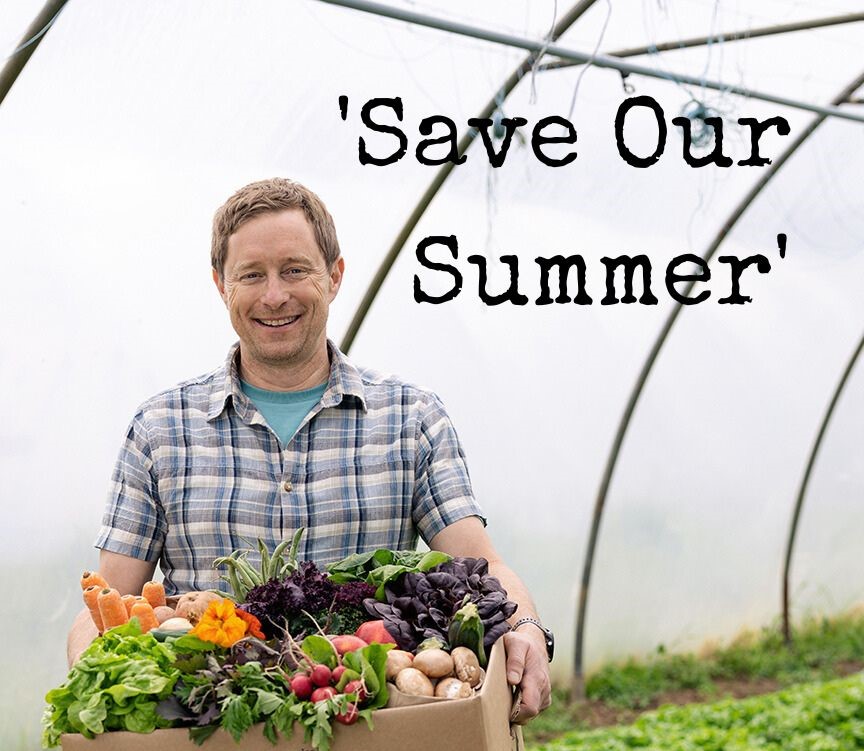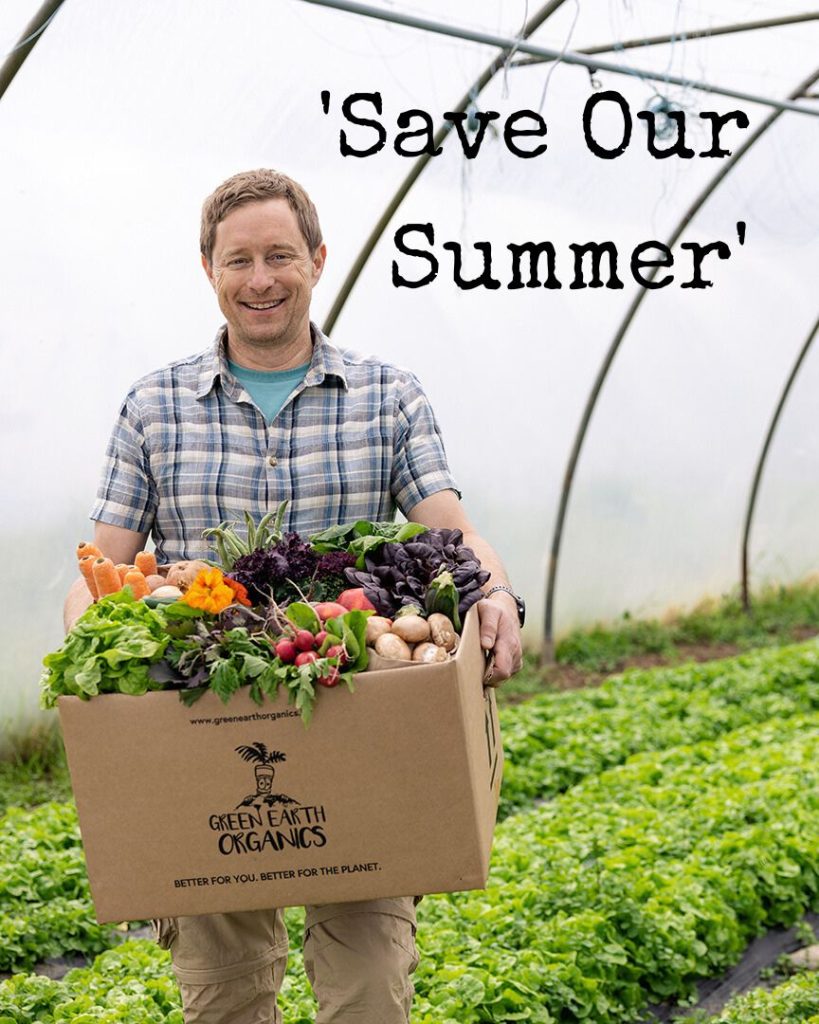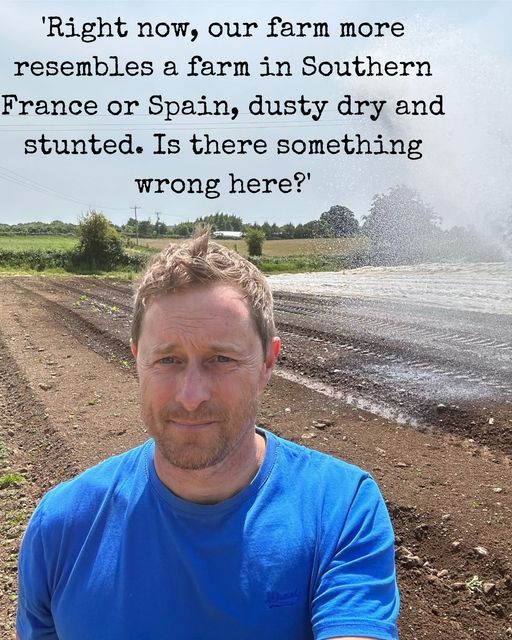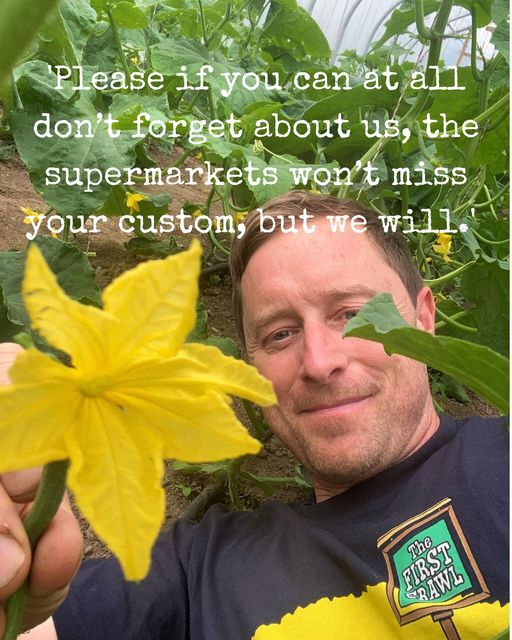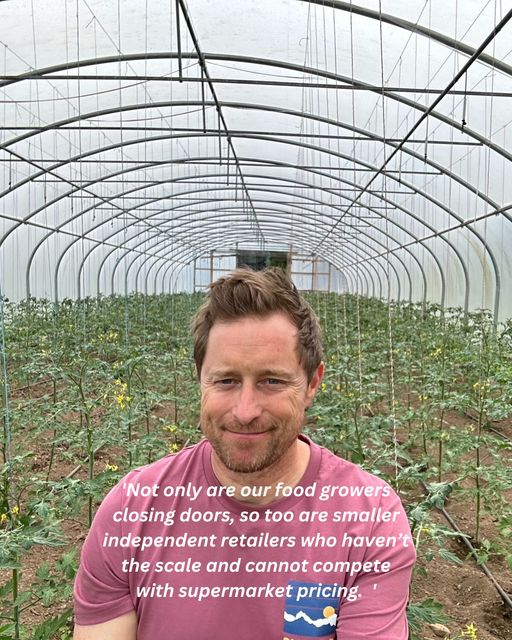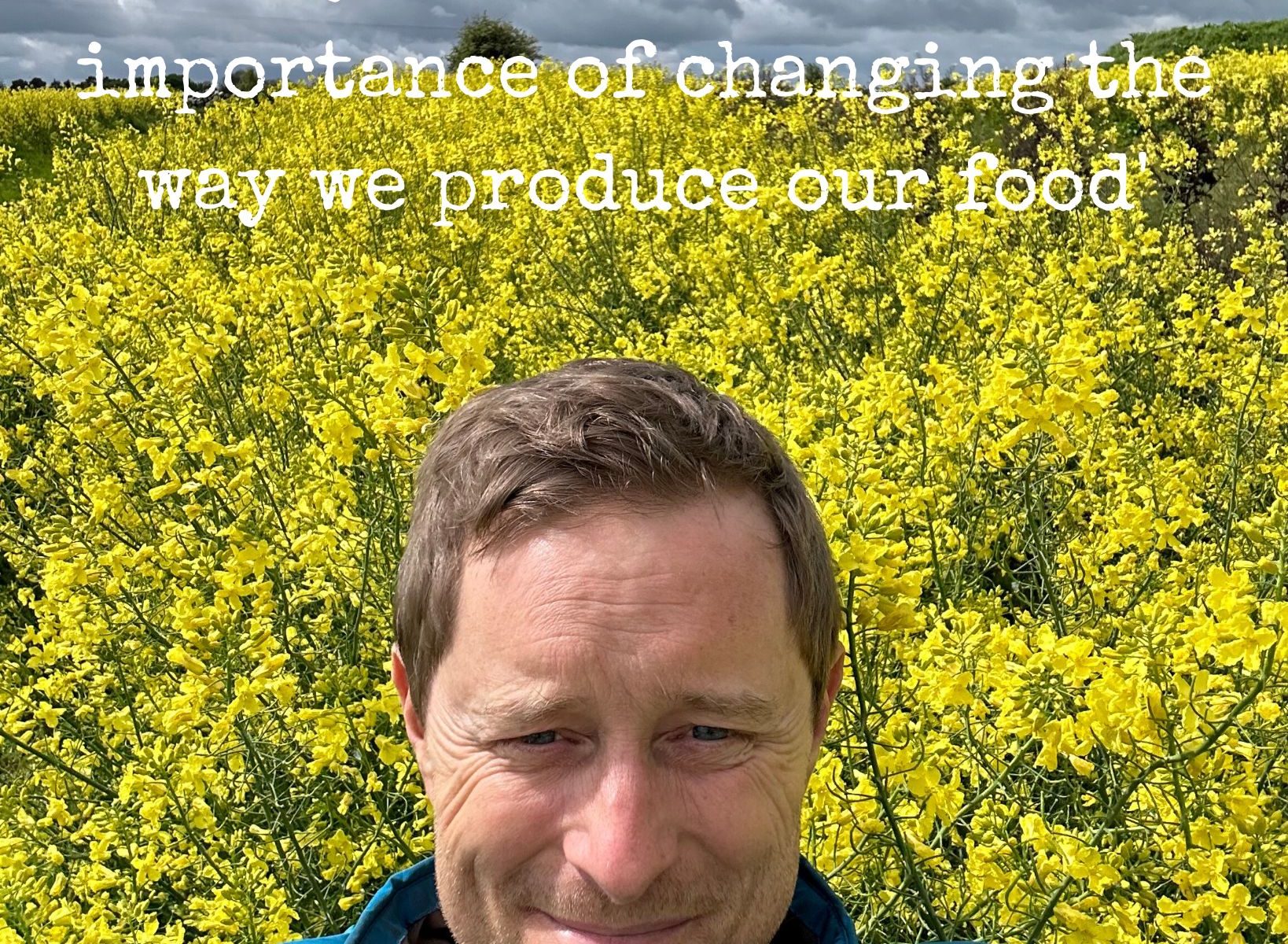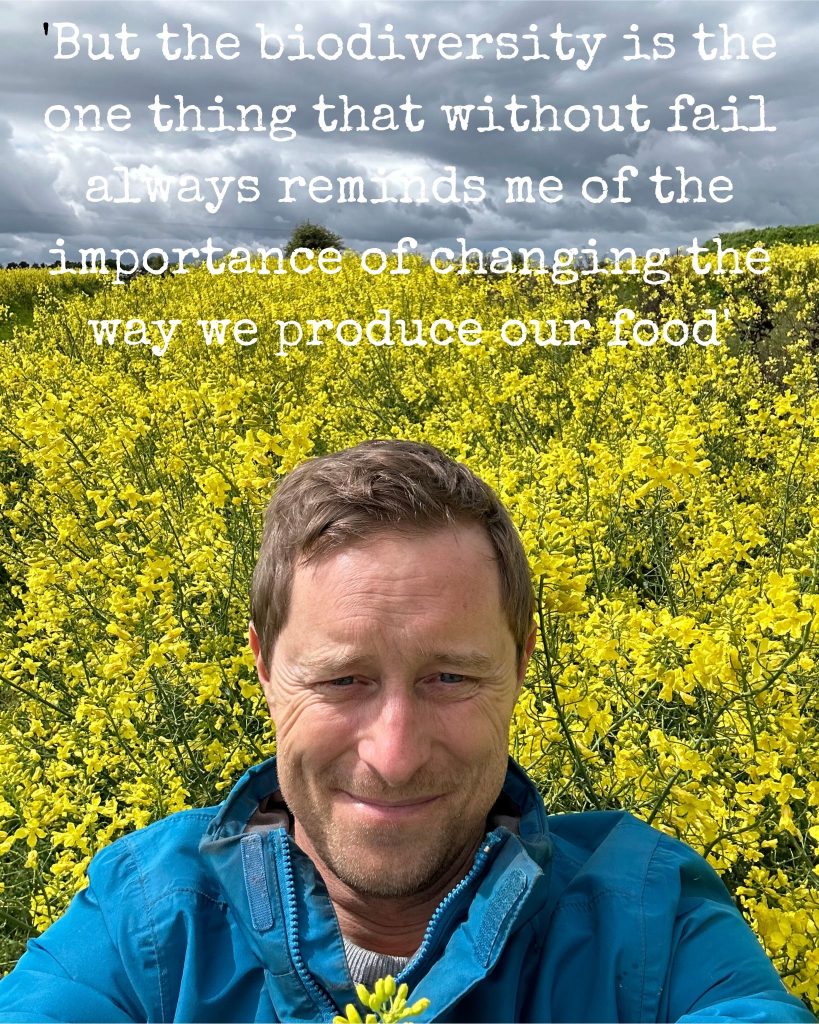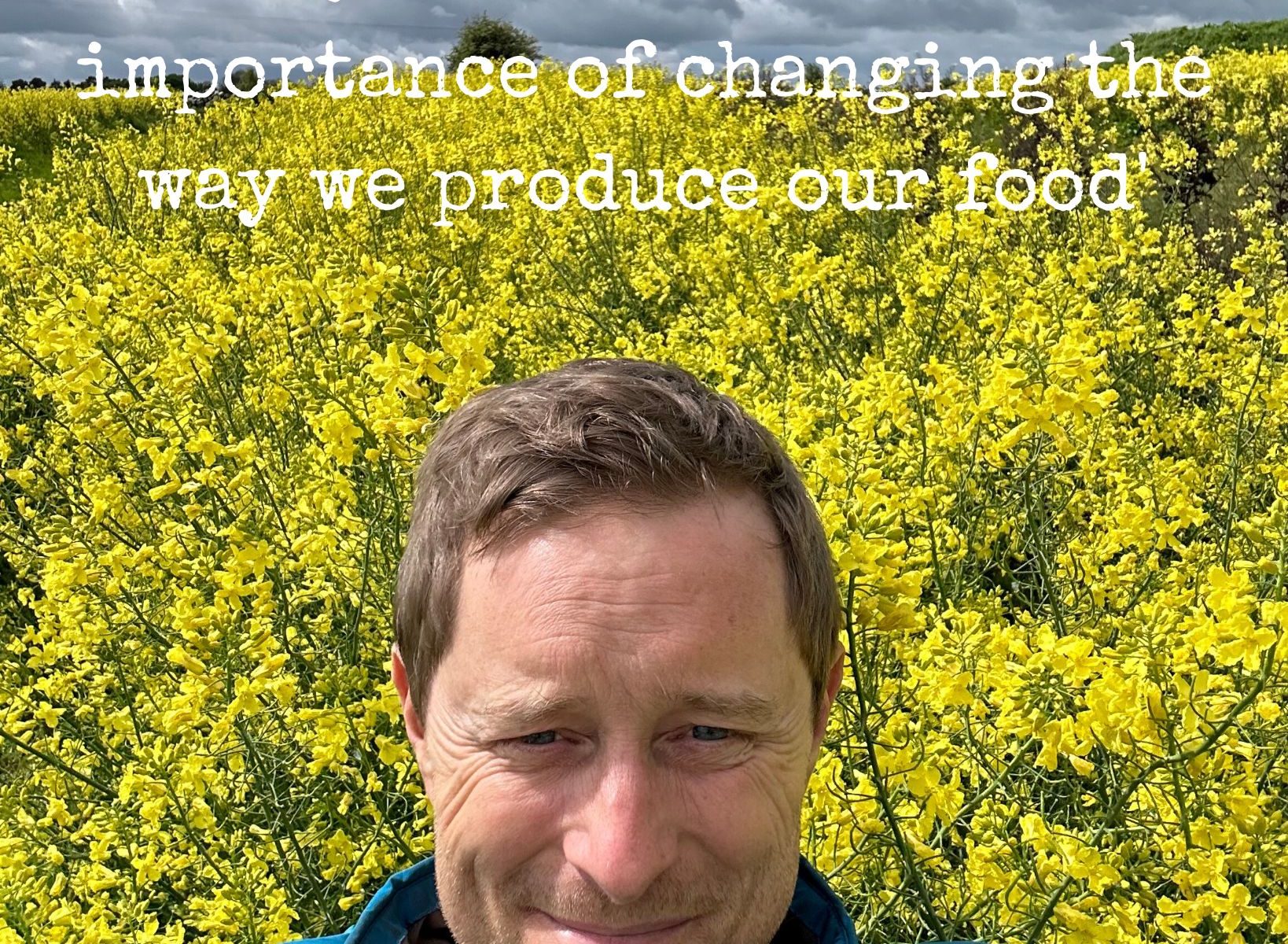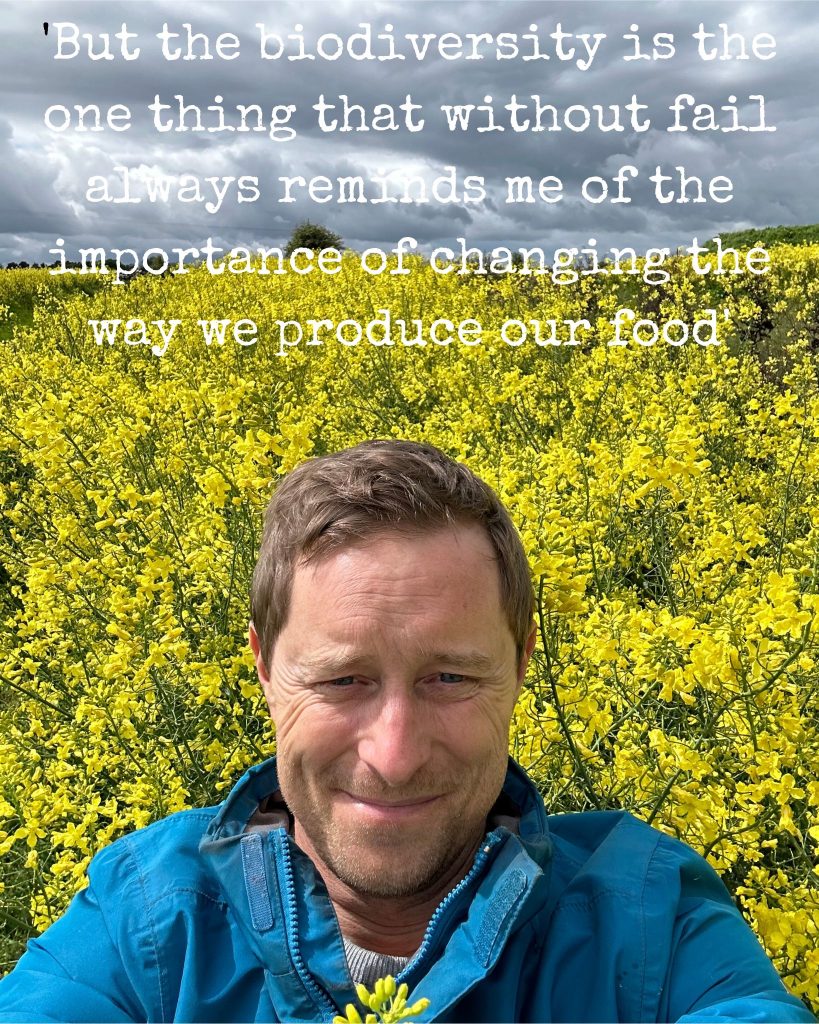It is always with a great sense of irony that we head into July. It is the official end of the hungry gap. We are catapulted from a frenzy of farming activity and a dearth of harvest in early June to a level of activity bordering on the insane and an overflowing harvest basket.
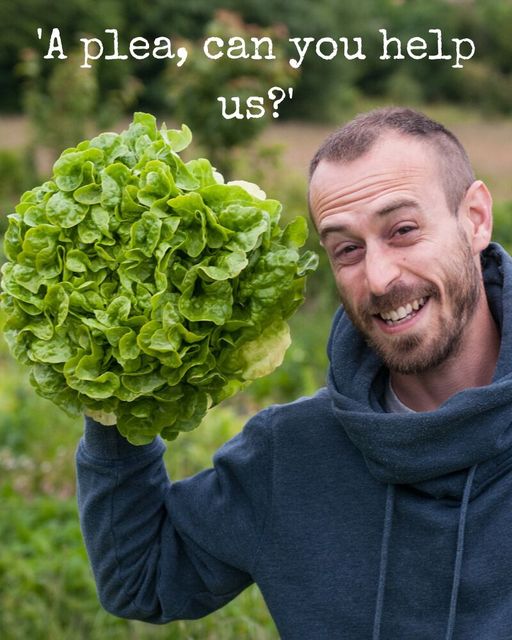
July is the time when we have a plentiful harvest, and it is the very same time that many of you our customers break your routine with cooking and many people are going away on holidays and are taking a well-earned break.
It is hard to assess our harvest need a year in advance and the last three years we have seen so much volatility; we are not sure what way is up anymore. But plans were made back in November and now we are harvesting the fruits of our labour.
This summer is proving to be a big challenge; We have so much of our own freshly harvested food right now and we have developed relationships with other local organic farms and now when the time of Irish plenty arrives, we find that you our customers are taking a break for all the usual reasons, holidays, not cooking, routines out the window and we understand completely.
The downturn this summer for us is leaving us with surplus harvest with nowhere to go but back into the ground.
This time of every year we also see a large increase in labour costs on the farm. It is a double downturn for us, as our costs go up and our sales go down. Anybody will tell you this is not a good way to run a business.
The initial start of the growing season on our organic farm, seeds, plants, fertiliser (organic), compost, contractors and labour are high, before you harvest even one bean. All of this is necessary to make the food in the fields happen.
Growing food at the best of times is not a money-making enterprise, far from it, we only ever expect the farm to break even and most years this is a stretch to achieve. We grow the food, because we love to do it, because sustainable agriculture is something we strongly believe in, and we believe is the key to a healthier future.
We have PV cells generating our electricity, we have invested in a zero-emission electric van, we collect our rainwater, we plant trees, and hedgerows, we use only plastic free packaging. We educate people on how important biodiversity is with free farm walks on the first Saturday of every month. To get everybody involved in thinking about the planet and the environment, where our food comes and how it is produced is our critical philosophy.
All of this takes time and energy, it all costs money and at the end of the day although everybody wants to enjoy their job and although nearly everybody that works with us believes in our values and our mission, they still need to get paid.
So, this is a plea, a plea to ask you to order next week, to find a way (if you can at all) to continue supporting us over the summer, to tell your friends and family to order from us, or let us deliver to you if you are on holidays in Ireland, (we deliver to every county with sustainable packaging).
The boxes next week are loaded with the most amazing fresh local Irish organic produce, including, spinach, salad, lettuce, courgettes, cucumbers, kale, scallions, tomatoes and we even have new IRISH organic potatoes.
So please if you can at all place an order.
Your support as always is very much appreciated.
Thanks
Kenneth

